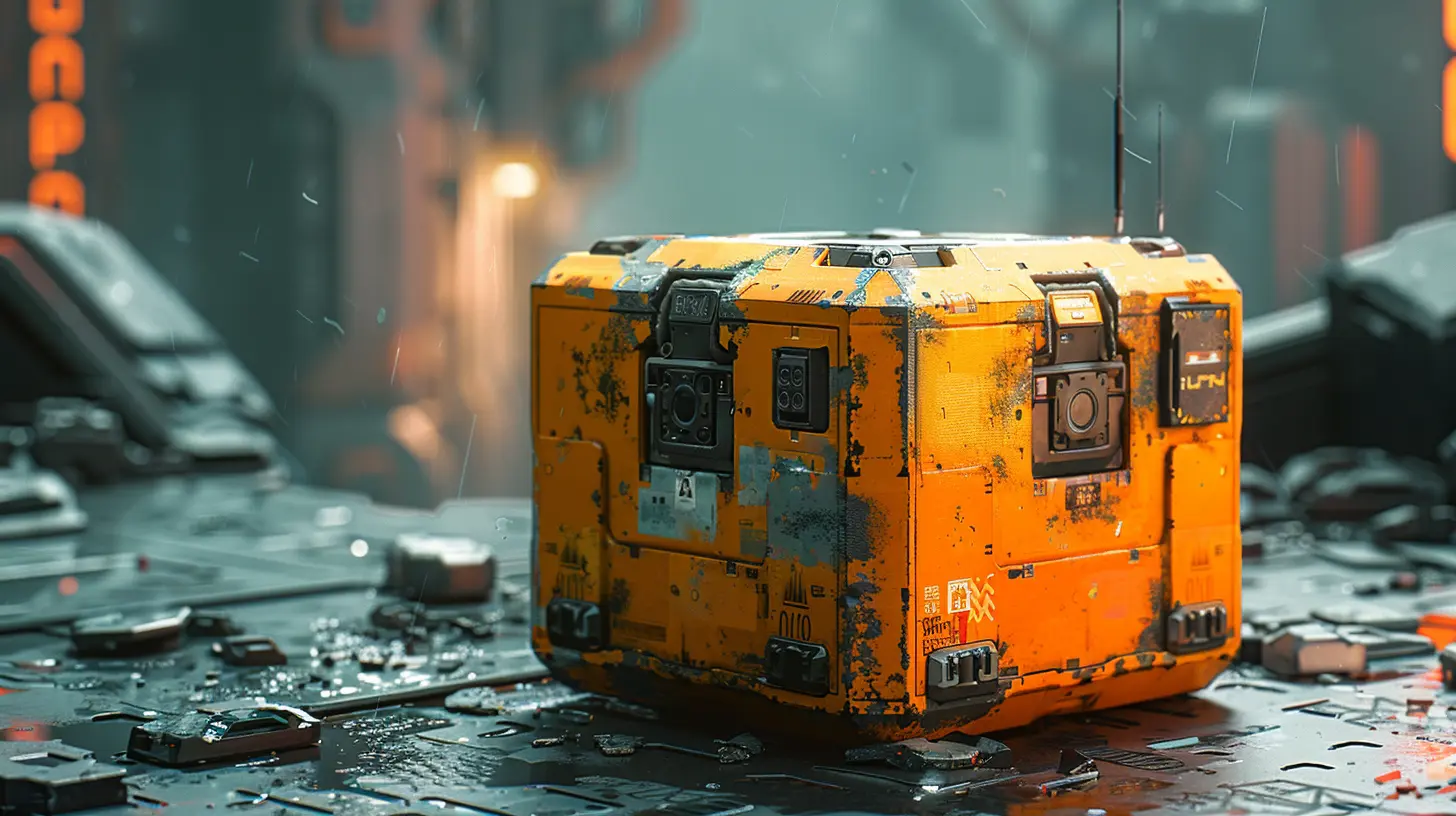The Future of Loot Boxes: What’s Next?
29 October 2025
If you’ve ever played a video game in the last decade, chances are you’ve come across loot boxes. These randomized bundles of in-game goodies have sparked everything from joy to outright frustration among players. But beyond the thrill (or despair) of opening one, loot boxes have stirred up debates across the gaming world, government halls, and even living rooms.
So, what’s next for this controversial mechanic? Stick around—whether you’re here as a gamer, a concerned parent, or just someone fascinated by the business side of video games, we’re diving into the future of loot boxes, from regulation to innovation.
A Quick Recap: What Are Loot Boxes?
Let’s back up for a sec. If you’re not 100% sure what loot boxes are, think of them as a digital version of those trading card packs we used to buy as kids. You pay (with real money or in-game currency), open the mystery box, and hope to get something awesome. Maybe it’s a shiny new weapon, a rare skin, or just… another duplicate item you didn’t need.Sounds fun, right? Well, not always. The randomness of loot boxes is exactly what makes them exciting and infuriating. Sometimes you hit the jackpot; other times, you feel like you just got ripped off. It’s this gamble-like nature that’s earned loot boxes their reputation—and sparked global scrutiny.
How Did We Get Here? The Rise (and Controversy) of Loot Boxes
Loot boxes weren’t always the billion-dollar industry they are today. Early examples, like the Treasure Keys in "Team Fortress 2" or card packs in "FIFA Ultimate Team," were simple add-ons. But as gaming shifted heavily toward online play, developers started using loot boxes as a way to monetize games post-launch.However, things took a sour turn when some companies pushed boundaries too far.
Take "Star Wars Battlefront II," for example. The game became infamous for tying key gameplay progress to loot boxes, sparking outrage across the industry. That fiasco turned loot boxes from a cool add-on into a dirty word for many gamers.
On top of that, the randomness and pay-to-win mechanics started drawing comparisons to gambling. Suddenly, it wasn’t just gamers raising eyebrows—lawmakers, parents, and consumer watchdogs worldwide started paying attention.
The Crackdown on Loot Boxes: How Governments Are Responding
Here’s where things start getting serious. Regulators around the world are stepping in and saying, “Hang on a second, is this even legal?”Countries like Belgium and the Netherlands were quick to slam the brakes on loot boxes, outright banning games that feature them unless they comply with strict gambling regulations. Other nations, like the UK and Australia, are debating whether loot boxes should be classified as a form of gambling, especially since younger players are often the ones buying them.
Meanwhile, big markets like the U.S. still sit on the fence. Sure, there have been hearings and loud discussions about loot boxes in Congress, but no sweeping legislation has been passed yet. For now, the industry is largely self-regulating, with companies like Microsoft, Sony, and Nintendo requiring games to disclose loot box odds.
The Industry Reaction: Adapting or Doubling Down?
With governments breathing down their necks, how are game developers and publishers responding? It’s been a mix of adaptation, innovation, and, let’s be honest, finding loopholes.1. Transparency Overhaul
Some companies have embraced transparency as a way to win back trust. Ever notice games now disclosing the odds of winning rare items in loot boxes? That wasn’t always a thing. Sure, knowing you only have a 0.01% chance of pulling that legendary skin doesn’t make it better, but at least it’s honest.2. Battle Passes to the Rescue
Remember when loot boxes were the only way to get cool in-game items? Not anymore. Many developers have pivoted toward battle passes—a model that guarantees rewards for progressing through tiers. Think of them as the anti-loot box: predictable, stable, and way less likely to make you rage quit.3. “Hybrid” Loot Box Models
And then there’s the hybrid approach. Some games are keeping loot boxes but blending them with other monetization systems. For instance, you might now have the option to outright buy an item you want instead of rolling the dice. Baby steps, right?What’s on the Horizon for Loot Boxes?
Now for the million-dollar question: What comes next? Are loot boxes doomed, or are they evolving into something new? Let’s look at a few trends that could shape their future.1. More Stringent Regulations
Like it or not, stricter laws are coming. Governments aren’t letting this one slide, especially with younger players in the mix. Future loot box systems may need to meet higher standards of transparency and fairness to avoid being slapped with a “gambling” label.2. AI-Driven Personalization
Imagine this: a loot box system that adapts to you. Data-driven and AI-powered systems could tailor rewards to suit your play style, making the loot you get feel less random and more rewarding. Sounds amazing—or terrifying, depending on how you look at it.3. Shift Toward Cosmetic-Only Items
One way to dodge the gambling argument? Strip away game-improving rewards entirely. More developers seem to be pivoting toward cosmetic-only loot boxes. After all, people are less likely to accuse something of being gambling if it doesn’t affect gameplay.4. Blockchain and NFTs
Yep, we’re going there. Blockchain and NFTs could usher in a new era of loot boxes where items have real-world value and can be traded outside the game. Imagine unboxing a rare skin and selling it for actual money. Exciting? Sure. Controversial? You bet.5. Player-Led Monetization
Some developers are exploring community-driven economies where players can create, sell, and trade items themselves. Why let a loot box decide your fate when you can just buy or sell what you need from other players?The Big Picture: Love Them or Hate Them, Loot Boxes Are Changing
Here’s the deal: loot boxes aren’t disappearing anytime soon. They’ve become a cornerstone of the gaming industry, raking in billions in revenue every year. But one thing is clear—they’re evolving. With increasing pressure from governments, players, and even the industry itself, loot boxes are heading toward a future that’s, hopefully, a little more ethical and a lot less rage-inducing.Whether we end up in a world of blockchain-powered loot boxes or AI-personalized rewards, one thing’s for sure: this conversation is far from over. The real question is, will developers make the changes players want to see, or will they keep pushing the envelope until someone shuts the whole system down?
all images in this post were generated using AI tools
Category:
Loot BoxesAuthor:

Jack McKinstry
Discussion
rate this article
1 comments
Zephyrion Wells
Embrace innovation; let player choice define loot boxes!
October 31, 2025 at 5:57 AM

Jack McKinstry
Thank you for your insightful comment! Embracing innovation and prioritizing player choice could indeed reshape the loot box landscape for the better.


